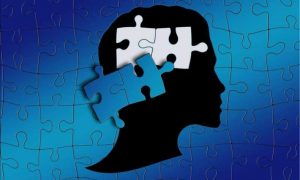
Researchers at the Caltech Brain Imaging Center have developed a new test to examine the components of theory of mind in people with autism. Theory of mind refers to the ability to understand other people’s beliefs, preferences, and intentions as separate from one’s own. People with autism have difficulties in understanding the thoughts and point of view of others. The study aims to better understand autism and identify subtypes within the disorder. Led by Damian Stanley and Ralph Adolphs, the research team deconstructed theory of mind using a more complex test involving a charity donation game.
In the classic theory of mind test, children are presented with a closed box of Band-Aids and their responses are observed. Young children often fail the test as they assume that others share their knowledge. Older children reason that others would make the same false conclusion they did. High-functioning adults with autism usually pass the basic theory of mind test, but it reveals little about the specific impairments. To gain more insight, Adolphs and Stanley’s team developed a more complex test involving a charity donation game.
In this new test, participants learn about a character named Sally who switches between “reversal” and “normal” environments. Sally must decide whether to donate money to charities based on her preferences. The “reversal” environment has opposite effects from what she expects. The test aims to uncover more details about the processes involved in theory of mind by tracking Sally’s decision-making, observing her beliefs and preferences, and examining which charities she likes and dislikes.
While both individuals with and without autism can understand the complex task after explanation and practice, individuals with autism struggle to learn which charities Sally intends to donate to and when she keeps the money. This suggests that theory of mind impairment in autism is specific to considering someone’s beliefs while interpreting their actions. The researchers hope that a more detailed understanding of theory of mind impairment can aid in developing future treatments. The research, titled “Deconstructing Theory-of-Mind Impairment in High-Functioning Adults with Autism,” was funded by the National Institute of Mental Health.
###
The paper is titled “Deconstructing Theory-of-Mind Impairment in High-Functioning Adults with Autism.” Funding was provided by the National Institute of Mental Health of the National Institutes of Health.
